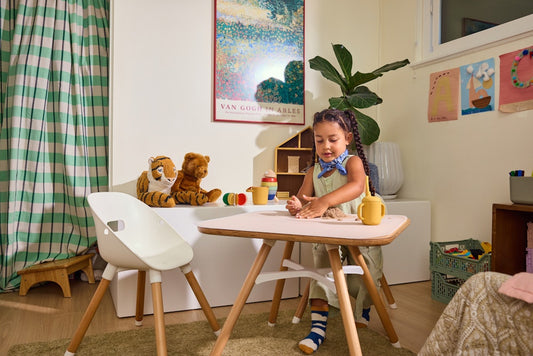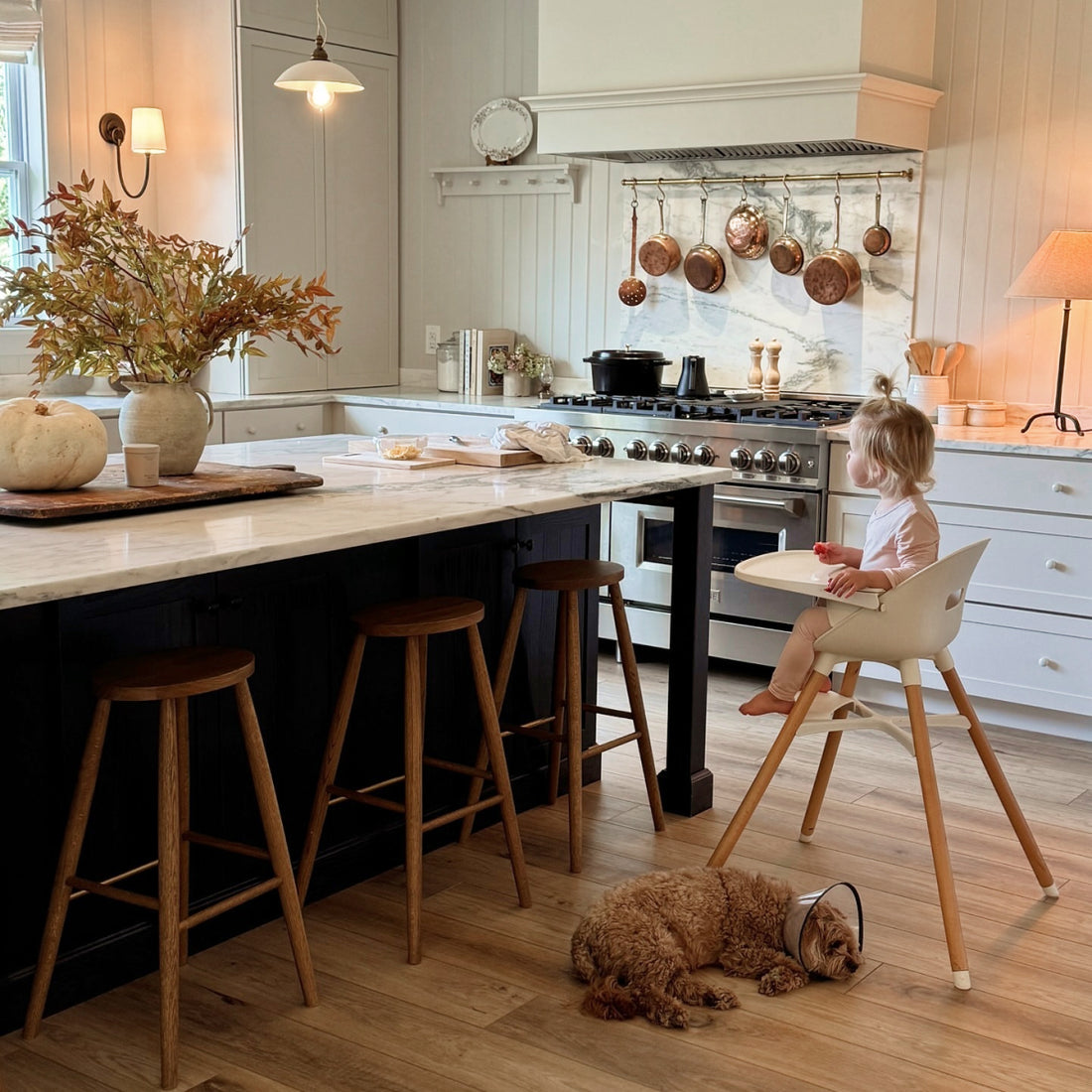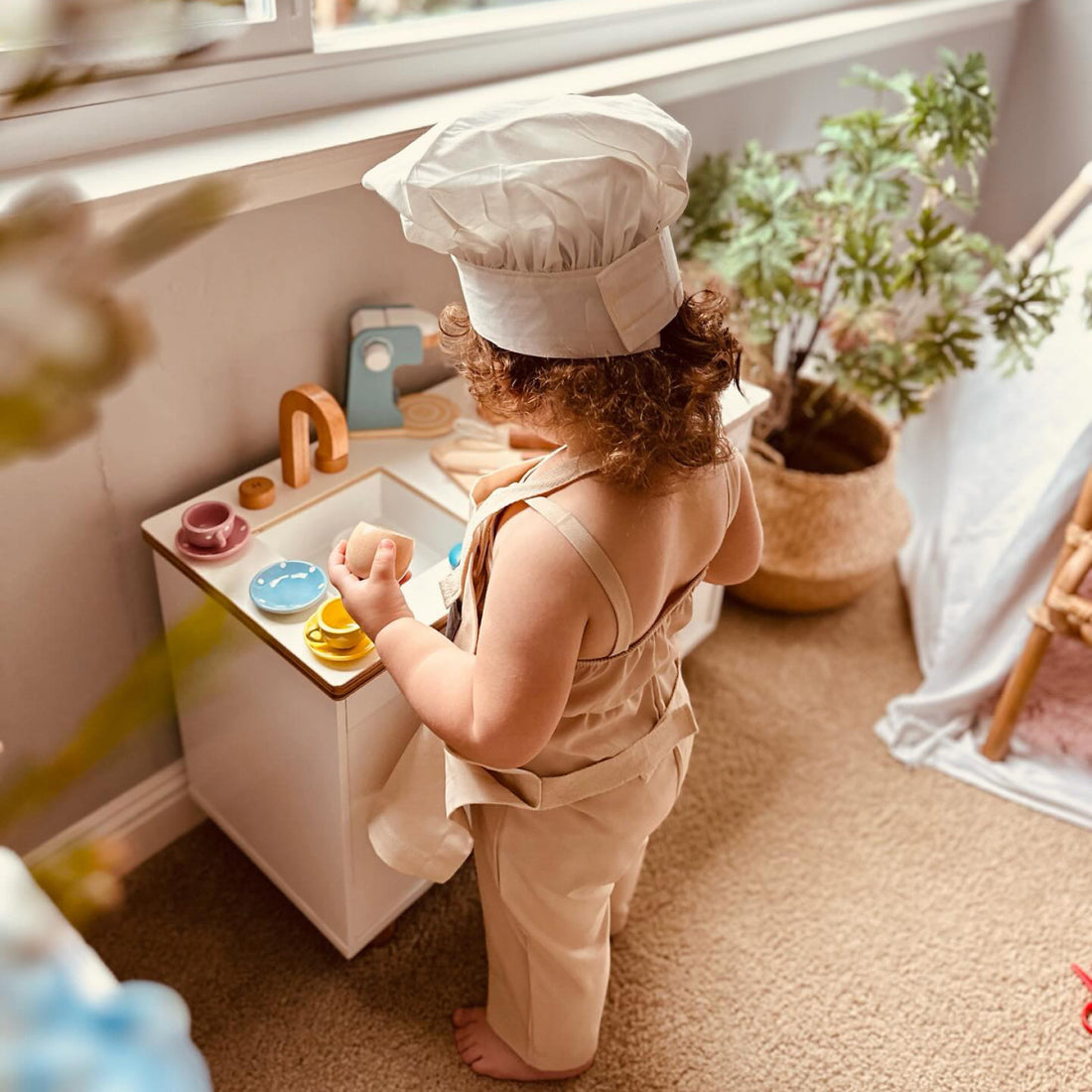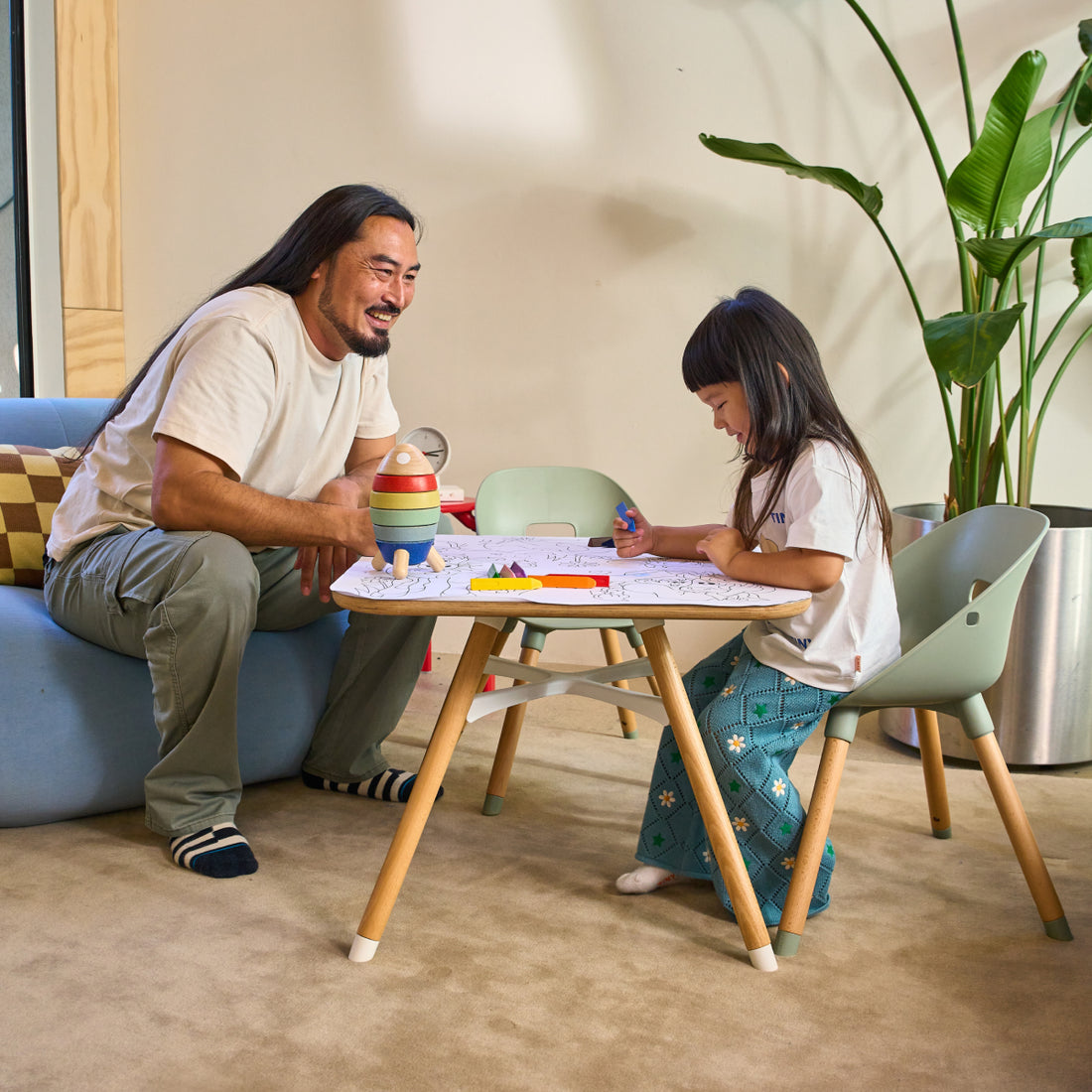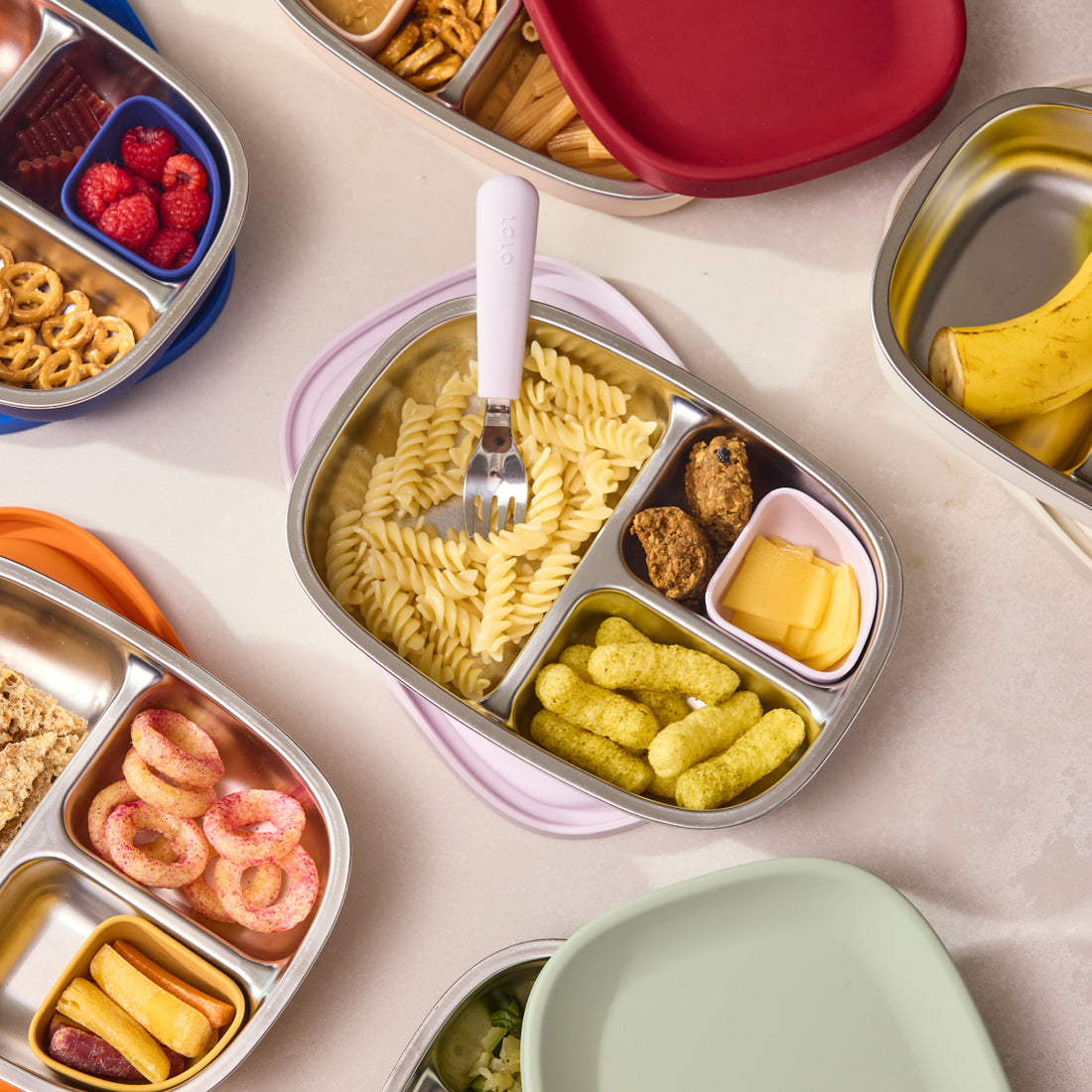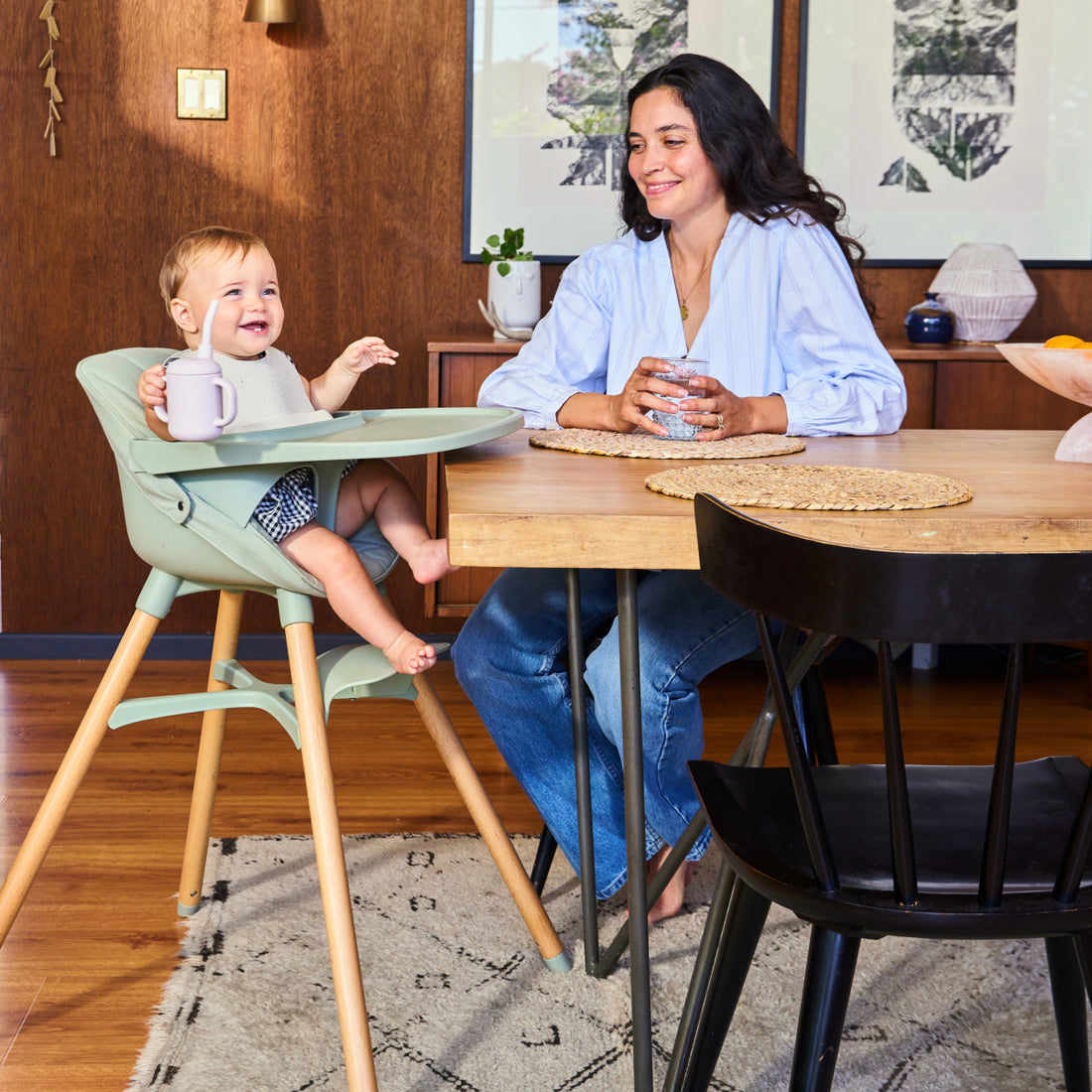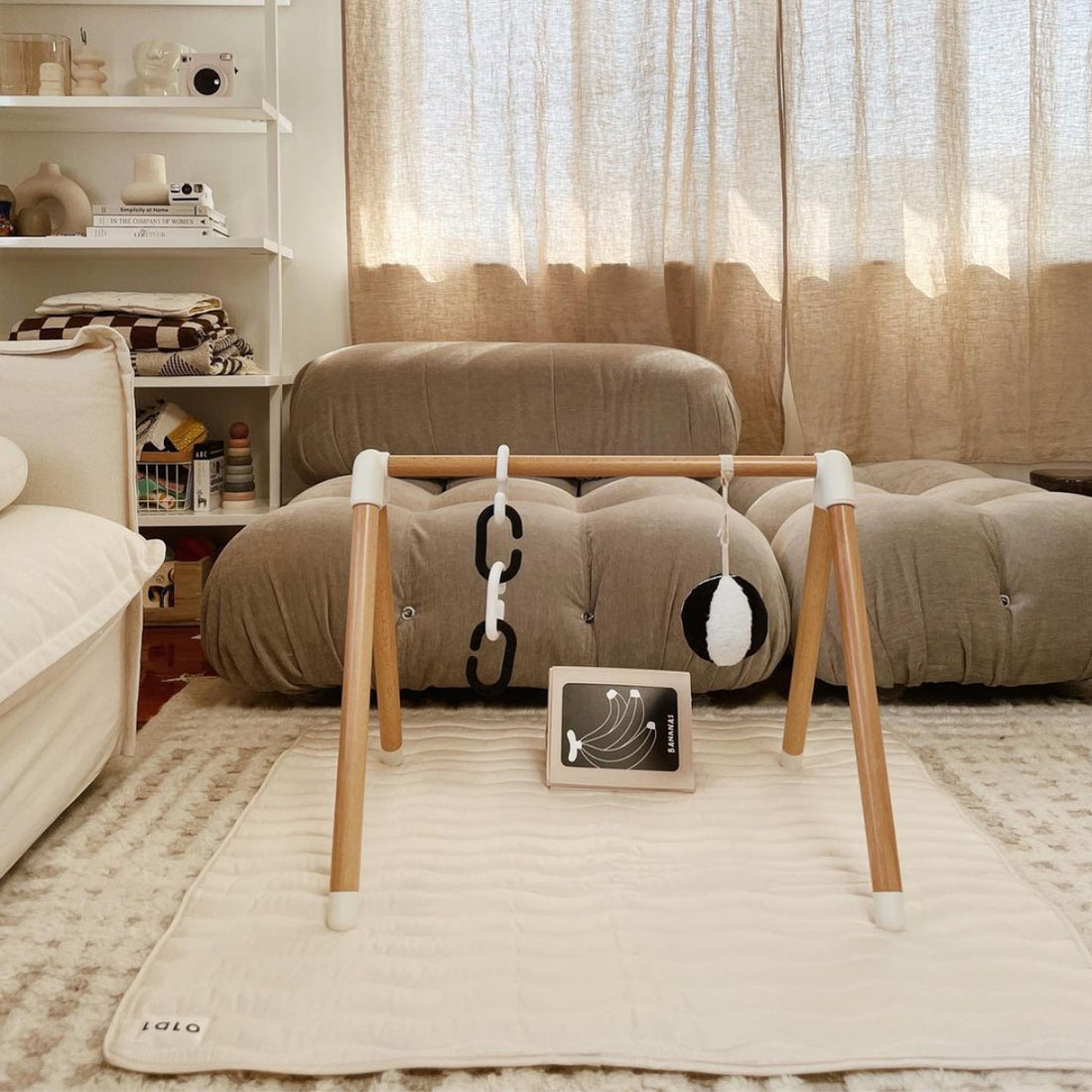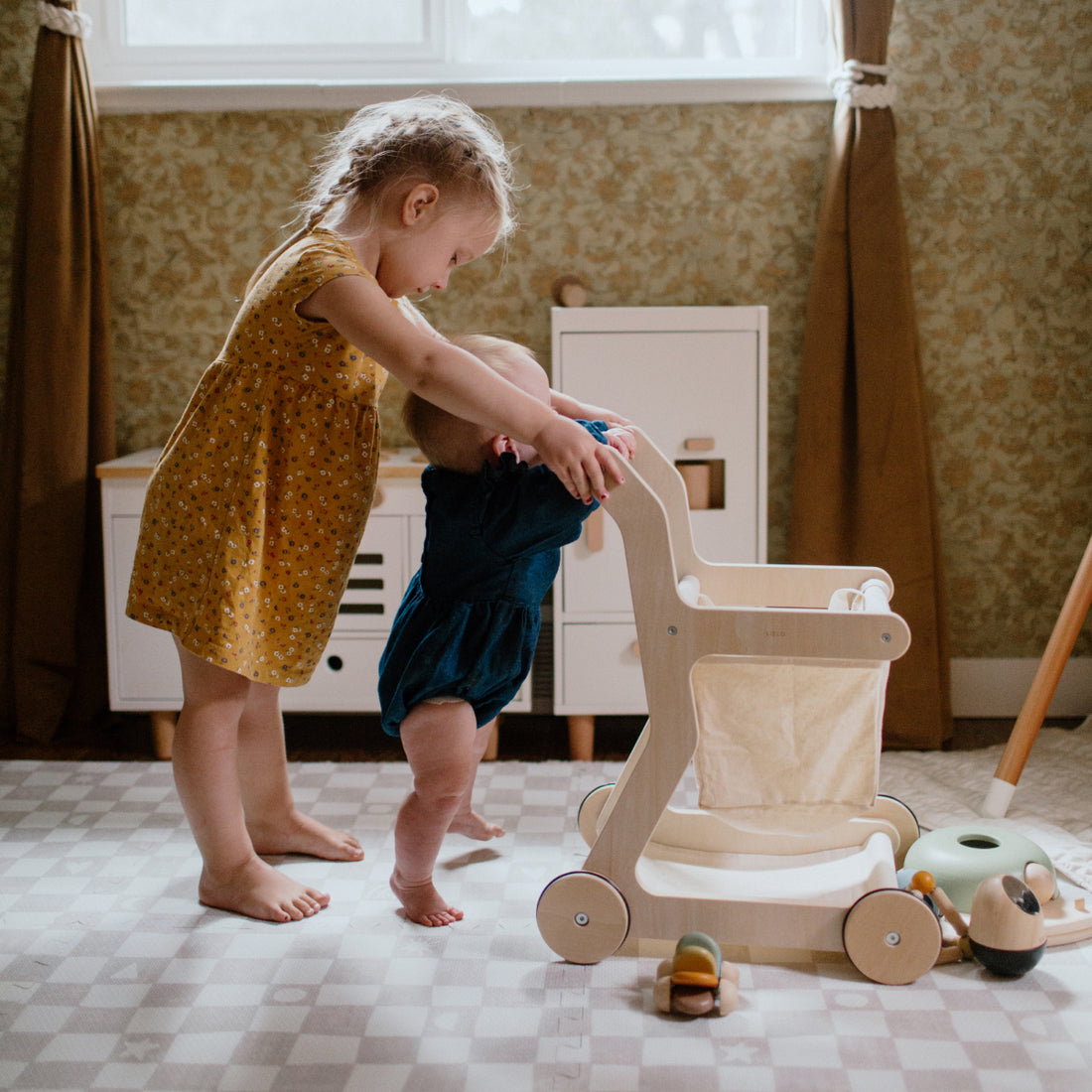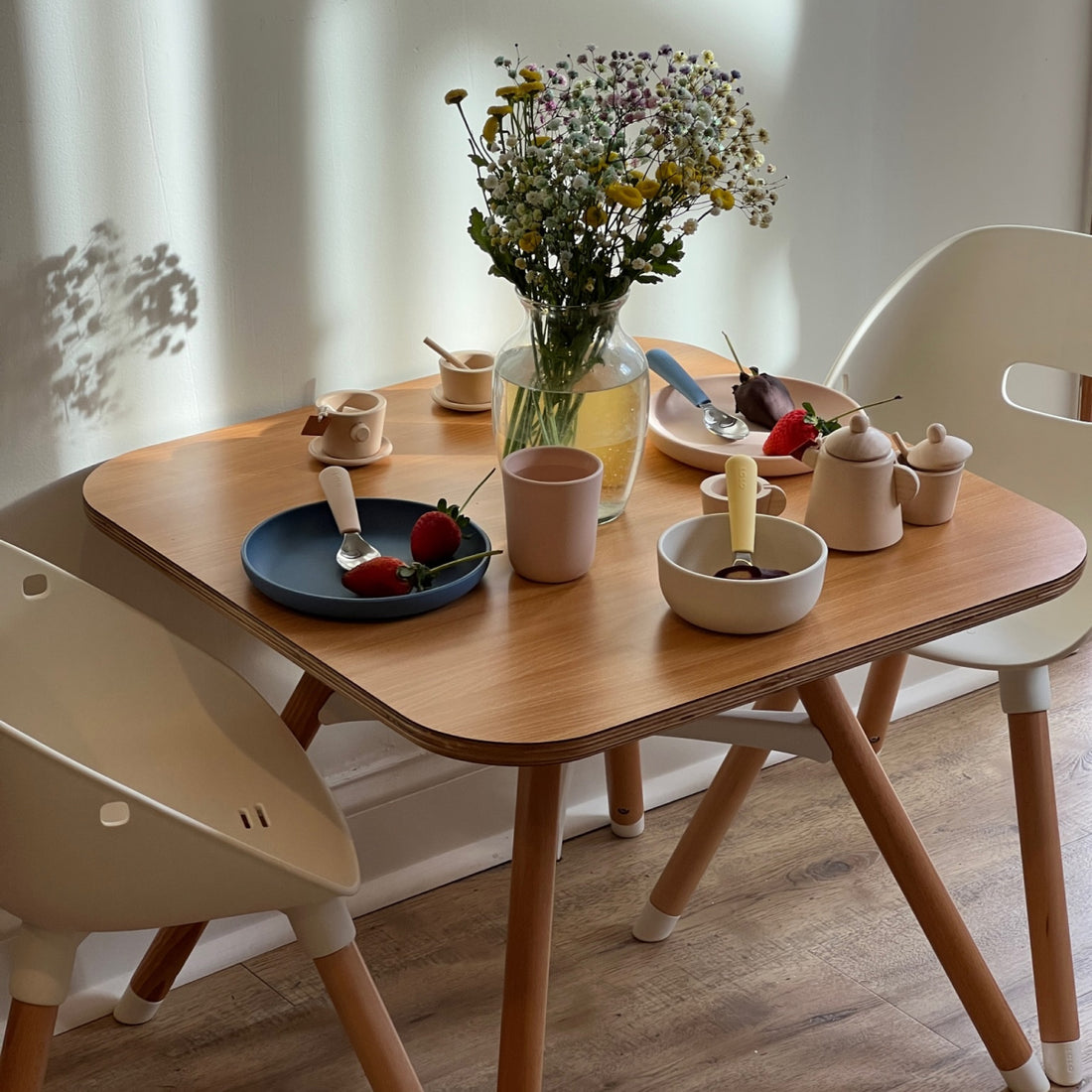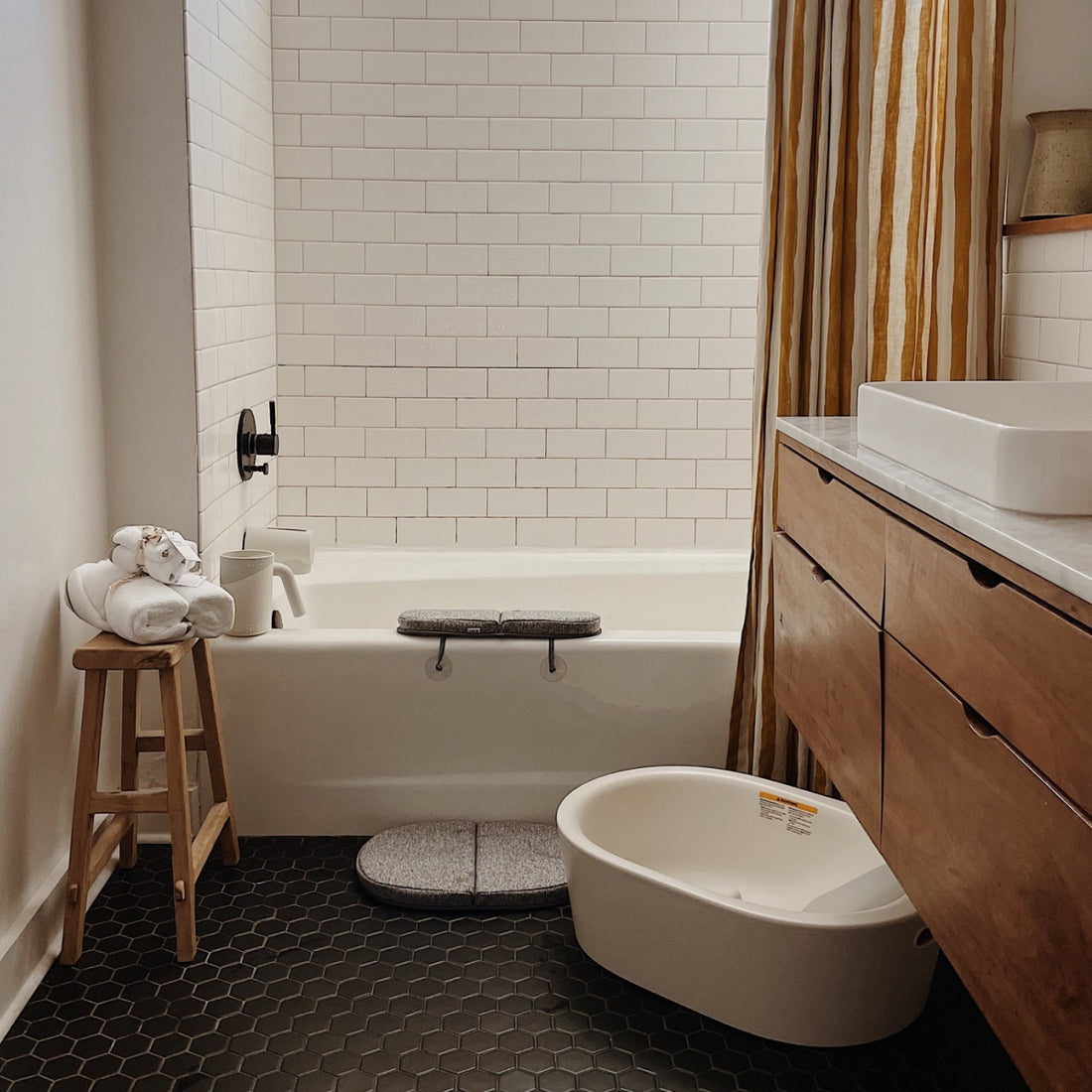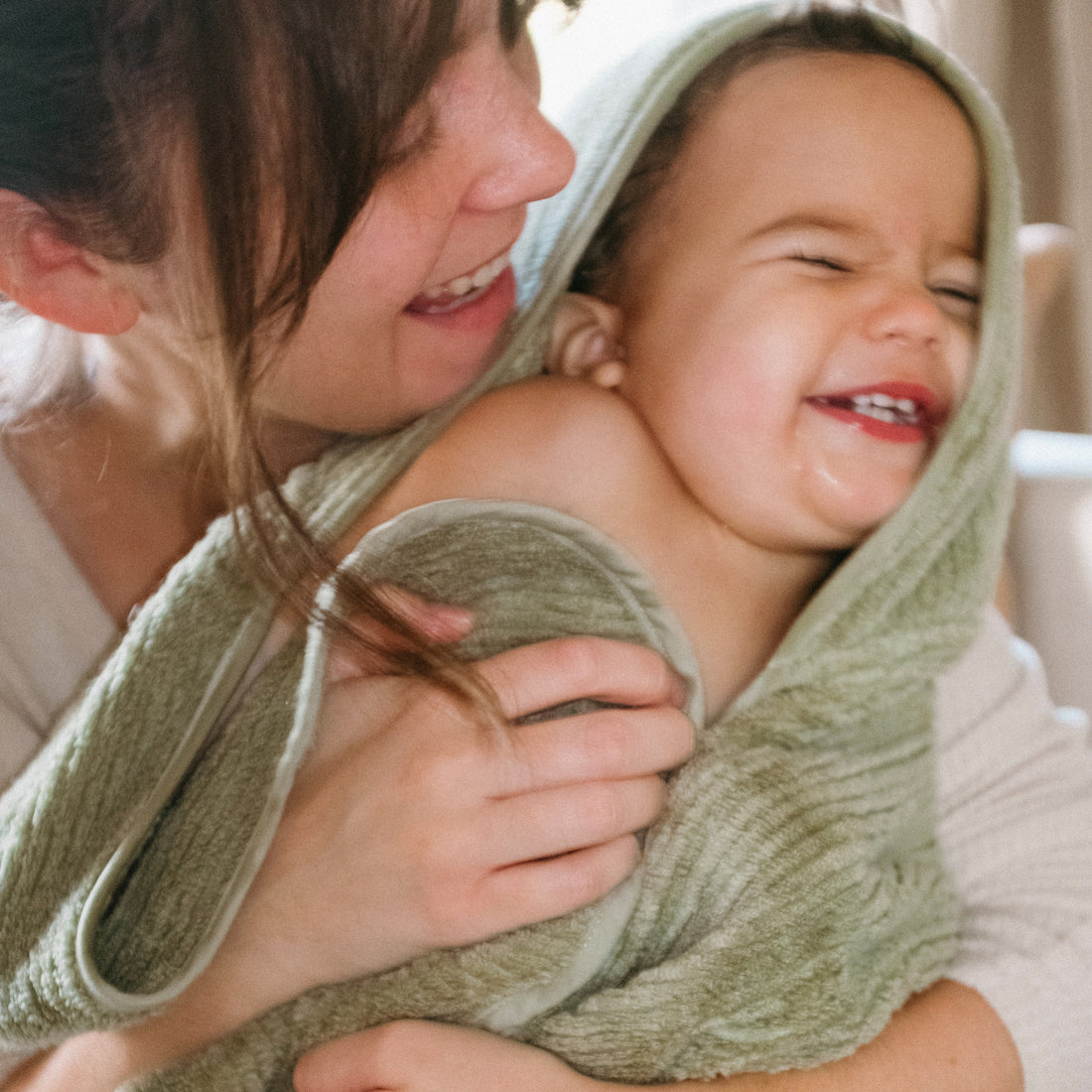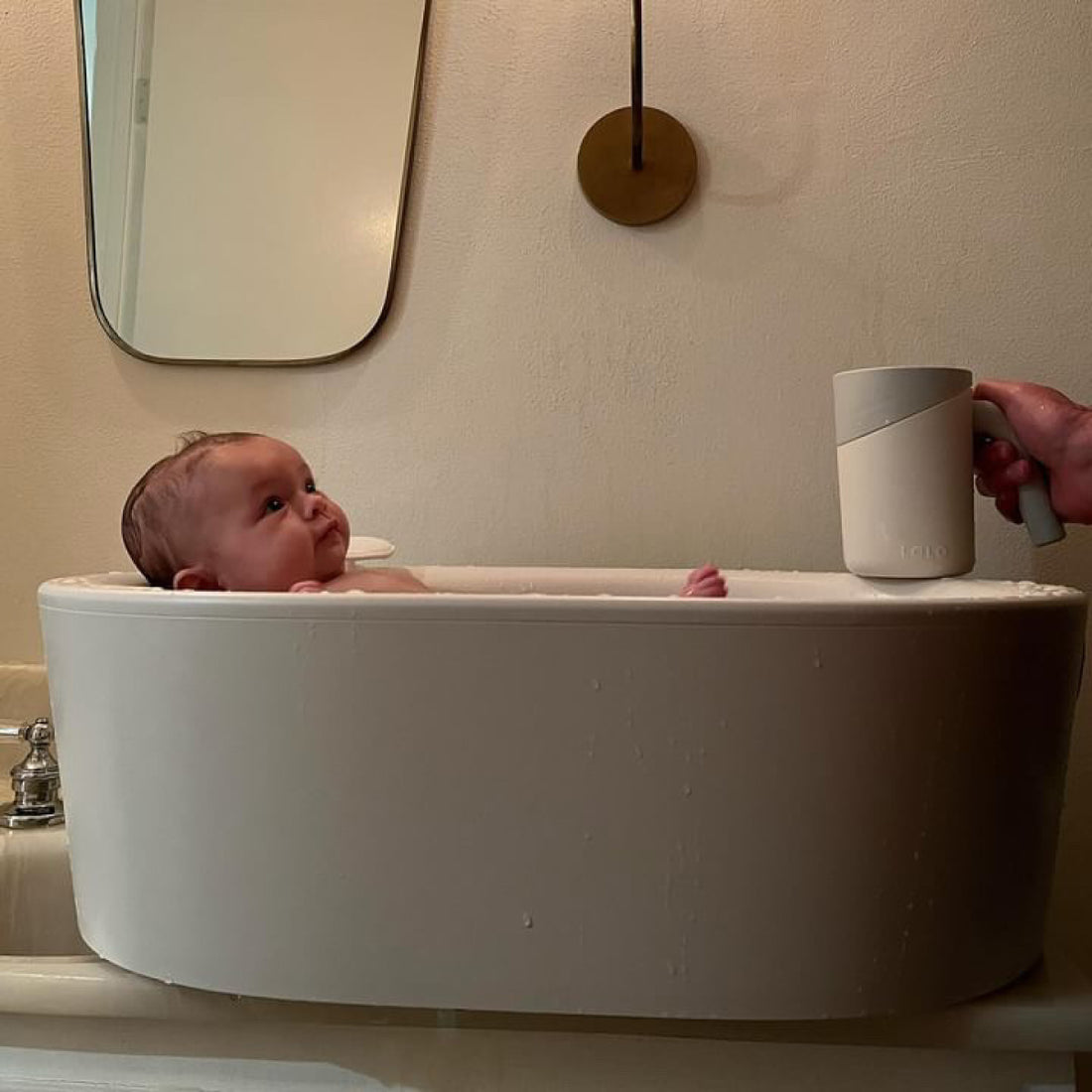by Mariel Gabriel, Co-Founder of Cooper, and Licensed Clinical Social Worker
Watch it back: How To Incorporate Play Into Everyday Routines:
How to Get the Most Out of Playtime
Carving out quality playtime can sometimes feel daunting when your days are already jam packed. Playtime isn't just about keeping kids entertained; it's a crucial part of their development as well. Here we provide a simple guide to understanding the different types of Play and how to easily incorporate it into your every day routines.
Key Concepts of Play:
-
Play is a gateway to a “state of flow” - a psychological experience where children are totally and happily immersed in an activity - it's in these moments that they learn best. Play is linked to improved academic, language, and social skills, problem solving, curiosity, and math ability.
-
You may sometimes feel guilt or pressure that you need to make the most of your time together and that your child always need to be learning something. With and without you next to them, trust that your child is actively learning from every moment of play.
-
Parents often struggle with play. Getting into a imaginative mindset can be challenging for adults, and it's not easy to pause the to-do list running through your mind.
-
Unstructured independent play builds a child’s self regulation and autonomy. Your child decides what to do and for how long, without the guidance of an adult.
What are the different types of Play?
-
Guided: Guided play is when an adult helps a child grow and stretch their skills by making suggestions, encouraging, and gently pushing them out of their comfort zone.
-
Independent: When kids play by themselves, they get to call the shots, decide what to do, and for how long. This can be tough, especially for younger kids. Playing independently is a skill that takes practice. Over time, playing independently is linked to stronger self regulation.
-
Collaborative: Through collaborative play with others, kids learn important life skills around, negotiating rules, taking turns and working towards shared goals.
-
Pretend: Pretend play is any type of play where kids pretend to be someone or something else or use objects to represent other things. Through pretend play, kids can practice regulating big emotions that they may struggle to manage in real life.
-
Rough & Tumble: Rough and tumble play (or "risky play" or "big body play") supports kids' confidence taking risks and gross motor skills, as well as learn to communicate boundaries, ask for consent, and respect others' limits.
-
Physical: Physical play involves activities that engage your child's body and senses, helping them build coordination, strength, balance, and social skills. Art, sports, dance, playing an instrument, or even just climbing on furniture are all examples of physical play.
Simple Play Ideas to Incorporate into Your Routine:
-
Avoid over-scheduling. Children need downtime in a “state of flow” to make meaning, to explore their interests, and recover from the hard work of listening and following all day.
-
Offer open-ended materials. Open-ended materials, like kinetic sand or natural materials, don't have a set agenda. These foster creative play.

-
Play with water in the tub or in a sensory bin. Dumping and pouring promote cognitive and motor skills.
-
Provide pretend play materials. Like a play kitchen, tools, or pretend food. Mix in real objects too. Children love to imitate what they see their caregivers doing (talking on the phone, cooking, etc).

-
Encourage independent play. First, keep your expectations realistic. Start small, with just a couple of minutes at a time. It can help to talk to them about their "play plan" for the morning at breakfast. Ask them questions about what they will do, what they'll build, and who their imagined characters are.
-
Provide active play materials. For example, tunnels, tents, etc. These support gross motor skills like climbing, crawling, tracking, throwing, jumping. Stretch your child’ s skills by changing the speed, distance, or getting creative (“How many times can we pass back and forth before the timer goes off? Let’s pretend to be elephants. How would an elephant throw the ball?”)

-
Set a timer for play dates. When children get tired, they often find it harder to cooperate. It’ s good to finish play time with everyone wanting to do it again.
A final word of advice, If your child is in a state of independent plat, let them be. Well-meaning interruptions from adults can be distracting. Sometimes parents feel like they're supposed to play with their kids all the time. Independent play is actually a powerful driver of self regulation.
When they get to call the shots ("it's a hotel, not a house"), they're practicing valuable skills without your guidance. So encourage their imaginations and remember to have fun (and enjoy the break!)
Meet the Expert
Mariel Gabriel, Co-Founder of Cooper, Licensed Clinical Social Worker and mom of 2

Mariel is the Co-Founder and VP of Content and Community at Cooper. She is a Licensed Clinical Social Worker with over 15 years of experience at Mount Sinai Medical Center working with families and children. She received her B.A. and B.S. summa cum laude from Northwestern University and her Master’s Degree in Social Work from New York University.
In addition to serving as the Program Director at the Mount Sinai Parenting Center, she is on faculty at the Icahn School of Medicine at Mount Sinai in the Department of Environmental Medicine and Public Health. She is the mother of two children, Madelyn and Lucas, and lives in Los Angeles.

